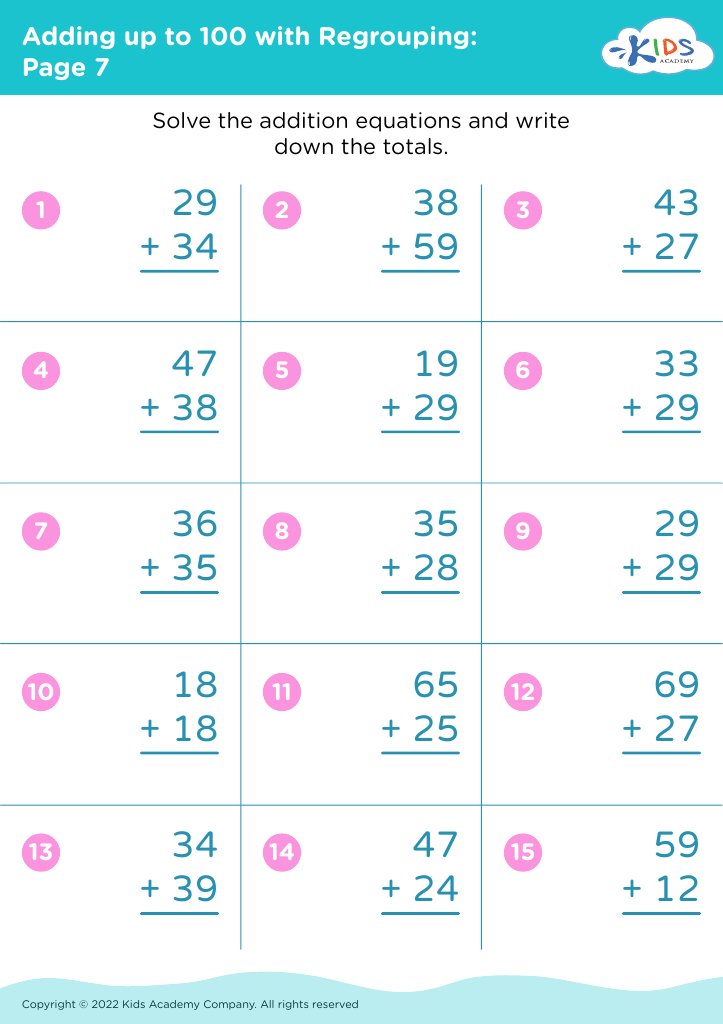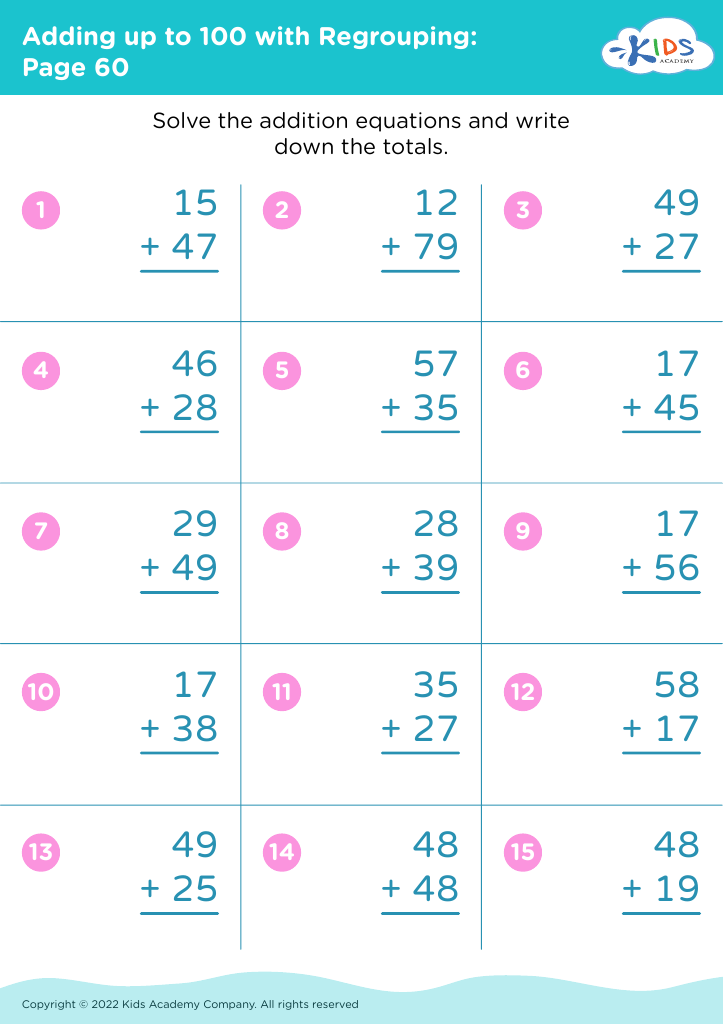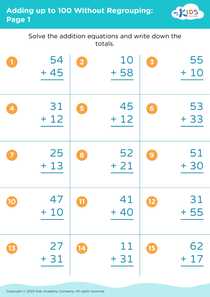Basic Addition Skills Adding up to 100 with Regrouping Worksheets for Ages 3-8
3 filtered results
-
From - To
Enhance your child's math abilities with our "Basic Addition Skills: Adding up to 100 with Regrouping Worksheets," designed for ages 3-8. These carefully crafted worksheets make learning engaging and effective by concentrating on fundamental addition skills. Our exercises encourage young learners to apply regrouping techniques, promoting a strong foundation in mathematics. Each worksheet is colorful and well-structured, providing a step-by-step approach to addition. Children will gain confidence and proficiency in solving equations up to 100, ensuring they are well-prepared for advanced math concepts. Empower your young mathematicians to add with ease and build essential skills through fun, interactive practice.
Basic addition skills, specifically adding up to 100 with regrouping, are crucial for young children (ages 3-8) as they lay the foundation for future math learning. Mastery in these early skills ensures the development of strong numerical understanding that is vital for tackling more complex math concepts later on. Regrouping, where numbers are restructured into groups of tens and ones, helps children understand place value and the inherent structure of our base-10 number system.
Parents and teachers should care about these skills because early competency in math correlates strongly with overall academic success. Children confident in their fundamental math abilities are more likely to develop problem-solving skills, logical thinking, and perseverance. These cognitive benefits extend beyond mathematics, helping kids in areas like science and even literacy.
Additionally, fostering these skills can build a child's confidence and positive attitude toward math at a crucial developmental stage. Positive early experiences in math reduce math anxiety, turning potentially daunting subjects into enjoyable puzzles.
Engaging children in basic addition with regrouping games and activities not only builds these essential skills but also creates an interactive and fun learning environment, strengthening the bond between parents, teachers, and children and making learning a collaborative effort.















